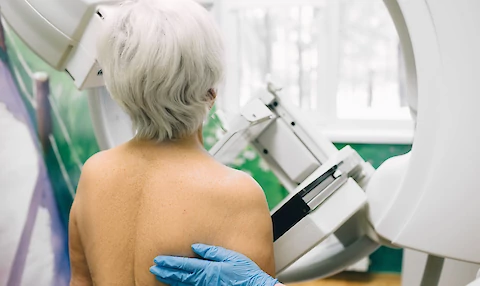
Breast cancer can be a daunting concern for many senior women. One of the key components to combating this concern is early detection, and mammograms serve as the primary tool for this purpose. You're looking for a comprehensive understanding of mammograms for seniors: when to start getting them, how often they should be done, what the procedure entails, and dispelling common myths and misconceptions. This information can contribute significantly to your healthcare journey and improve your overall well-being.
What Is a Mammogram?
A mammogram is an X-ray picture of the breast. It is an efficient screening tool that helps detect breast cancer in women, often before they show symptoms. Mammograms can identify changes in the breast that could indicate cancer, significantly increasing the likelihood of early detection and successful treatment.
When Should Seniors Start Getting Mammograms?
The American Cancer Society recommends seniors with an average risk of breast cancer should begin annual mammograms at age 45 and can transition to biennial screening (every two years) at age 55. However, depending on your personal and family health history, your doctor may recommend a different timeline.
What to Expect During a Mammogram
Before the procedure, you're advised not to apply any deodorant or lotion under your arms or on your breasts as they can show up on the X-ray. During the procedure, a radiology technician will place your breast on an X-ray plate and another will press onto the breast to flatten it for a few seconds. Some discomfort may be felt, but it is generally minimal and subsides soon after the procedure. After the mammogram, your healthcare provider will discuss the results with you.
Common Myths and Misconceptions About Mammograms for Seniors
Several myths and misconceptions surround mammograms. One common myth is that they are very painful. While the compression can be uncomfortable, it is temporary and necessary for a clear view. Another misconception is that mammograms themselves can cause breast cancer in seniors. This is not true. The amount of radiation used in mammograms is small and within the safe limit. Finally, the idea that only women with a family history of breast cancer need mammograms is incorrect. In fact, most women who develop breast cancer do not have a family history of the disease.
Importance of Regular Mammograms for Senior Women
As women age, their risk of breast cancer increases, making regular mammograms crucial for early detection. Regular screenings can help find cancer early when it's easiest to treat, potentially saving lives.
Senior Helpers Stafford Provides Assistance to Seniors' Needs
Mammograms are a powerful tool in the early detection of breast cancer in seniors. Despite the myths and misconceptions, they are a safe and necessary part of healthcare for senior women.
If you live in Fredericksburg, Stafford, Locust Grove, Spotsylvania, or Bealeton, Senior Helpers Stafford is here to support you in your healthcare journey. With our array of services, we strive to empower our senior community through education, support, and quality care. Reach out to us today for more information.